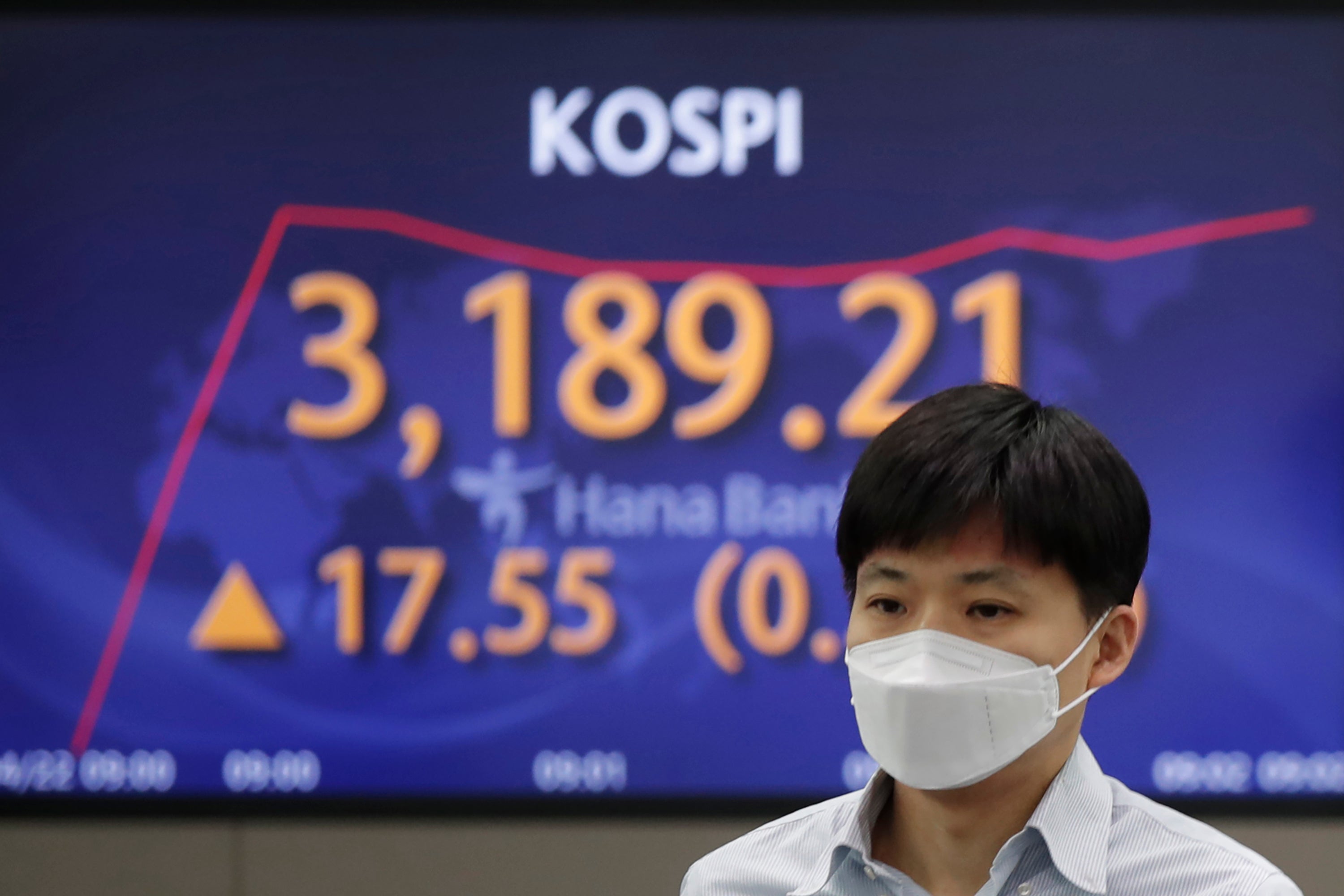Asian shares rebound after advance on Wall Street
Asian shares are higher after a broad advance on Wall Street

Asian shares were higher on Thursday after a broad advance on Wall Street led by technology companies and banks.
Shares rose in Tokyo, Hong Kong and Sydney but were flat in Shanghai U.S. futures edged lower.
Japan's Nikkei 225 index added 2.4% to 29,188.17. Toshiba Corp. jumped 3.5% amid reports that Bain Capital may be considering an acquisition proposal as an earlier takeover bid by CVC Capital appears not to be progressing.
Hong Kong's Hang Seng rose 0.5% to 28,760.51. In Seoul, the Kospi picked up 0.2% to 3,177.52. Sydney's S&P/ASX 200 jumped 0.8% to 7,055.40. The Shanghai Composite index fell 0.4% to 3,459.46.
Shares rose in most other markets but fell in Kuala Lumpur.
On Wednesday, the S&P 500 rose 0.9%, snapping a two-day slide, to close at 4,173.42. The Dow Jones Industrial Average gained 0.9% to 34,137.31. Both the S&P 500 and Dow hit all-time highs on Friday. The technology-heavy Nasdaq added 1.2% to 13,950.22.
The Russell 2000 index of smaller company stocks, which has been outpacing the broader market all year, led the way higher, climbing 2.3%, to 2,239.63.
Most of the companies in the benchmark index rose, with technology, financial, and health care stocks accounting for a big share of the gains. Tesla Amazon and other companies that rely directly on consumer spending also rose. Communication and utilities stocks fell.
Investors are weighing company earnings reports while keeping an eye on bond yields, which eased lower. The yield on the 10-year Treasury slipped to 1.54% from 1.56%.
Much of the market's focus over the next two weeks will be on individual companies and the outcome of their quarterly results. About 80 members of the S&P 500 are due to report results this week, as well as one out of every three members of the Dow. On average, analysts expect quarterly profits across the S&P 500 to climb 24% from a year earlier, according to FactSet.
“Those companies that meet or beat on revenue and paint a nice picture for the rest of the year are being rewarded," said J.J. Kinahan, chief strategist with TD Ameritrade. “When a railroad company is saying we really see improvement for the second half of the year, that’s a really good sign."
Netflix slumped 7.4% on Wednesday for the biggest decline in the S&P 500. The video streaming pioneer disappointed investors with its latest report on subscriber additions, which fell below its own forecasts. The gangbuster growth Netflix had seen during the pandemic appeared to be slowing as people start leaving their homes more and as competition from rival services picks up.
Investors are looking to justify the market's advance this year, despite the lingering pandemic and higher-than-normal unemployment. There are also signs of COVID infections increasing outside the U.S. in major economies such as India and Brazil once again.
In other trading, U.S. benchmark crude oil shed 41 cents to $60.94 per barrel in electronic trading on the New York Mercantile Exchange. It lost $1.32 to $61.35 per barrel on Wednesday.
Brent crude, the international standard, declined 41 cents to $64.91 per barrel.
The U.S. dollar slipped to 107.97 Japanese yen from 108.08 yen. The euro rose to $1.2040 from $1.2033.